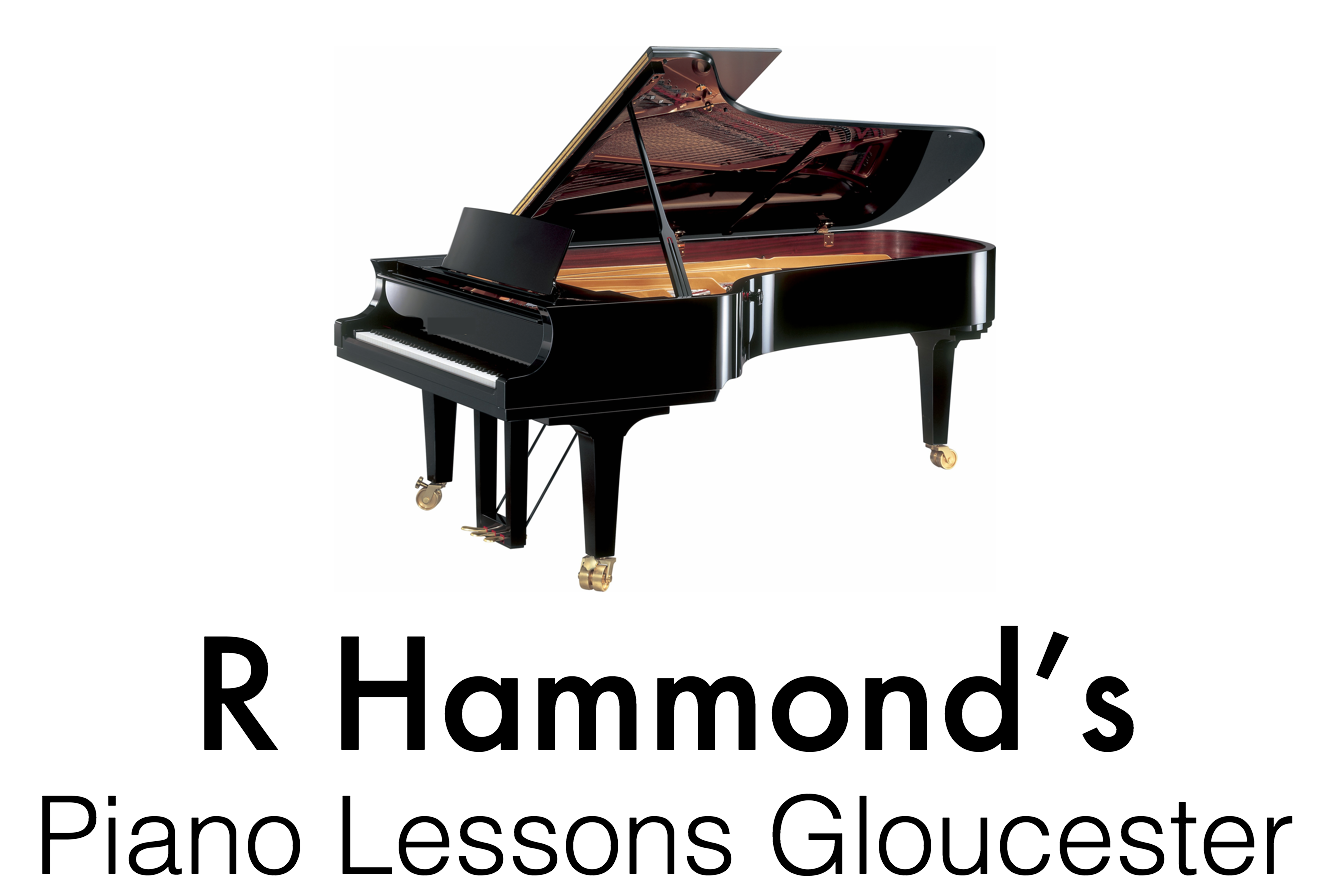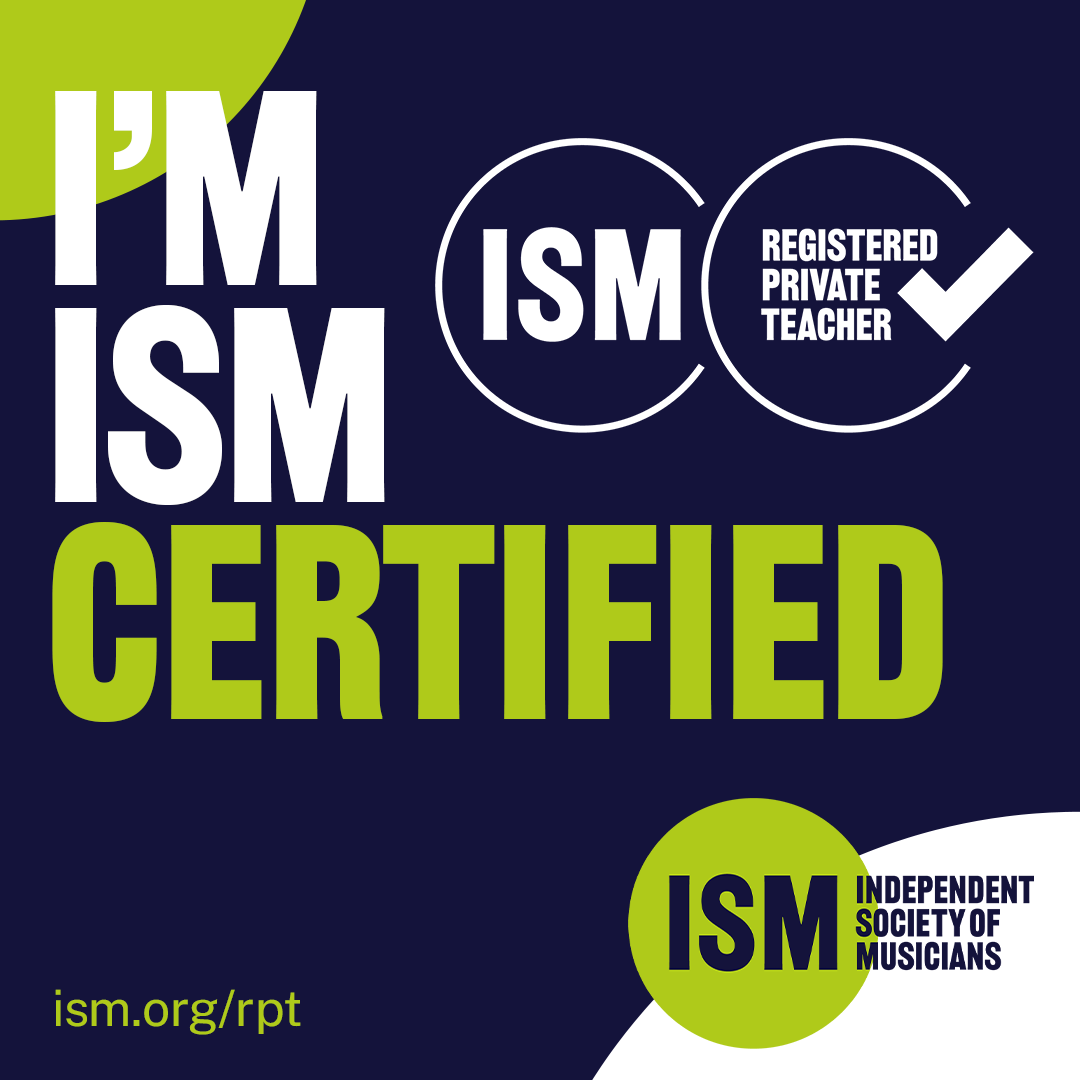Teaching and Learning Policy (Updated August 2024)
Like all piano teachers I have a teaching and learning policy. This is so that everyone is clear about what you can expect from me and what I can expect from you whilst you undertake tuition. These terms are legally binding, govern what procedures run the practice and are backed by the Independent Society of Musicians (ISM).
PAYG - Refers to Students who are ‘Pay As You Go’ meaning they do not have a set lesson time or frequency. These students book lesson appointments online at various times.
Block Booking - These students have a set lesson time, day and frequency and hold their space for 12 months at a time. These students sign an agreement to accept this space and agree to the below terms and conditions.
LESSON TIMES:
- The most up-to-date lesson times and lesson fees are displayed on our website. If you are unable to have a lesson during the times set, I will try to accommodate you as best I can.
- Booked lessons take place at the time agreed and, at the students discretion, either in-person at the teachers address or online in the students home. Late students only receive the remaining time they have booked and paid for, as it is not my responsibility to recover lost time caused by the student. However if I am late to the lesson then the time will be made up.
- In most cases, I teach back-to-back lessons due to which there can occasionally be an unavoidable 5 minute overlap period. In most circumstances, the missing time is made up, but this cannot always be guaranteed.
- During the lesson, notes will be typed containing details of what has been taught and covered and independent private study to be completed - all these tasks are part of the lesson.
- Please note that your lesson fee covers teaching contact time; is a contribution to the various necessary insurances and advice and educational queries answered outside of your lesson time. It is not solely for my time. Therefore, the lesson fee for in-person and online lessons are the same.
PAYMENT:
- All lessons must be paid by Bank Transfer (preferred) or Online Card Paymentin advance. Due to accounting processes, Cheques and Cash are no longer accepted.
- All students both PAYG and block booking receive a monthly invoice on the last day of each month detailing lesson appointments and any agreed exam entry fees and books with payment terms being within 7 days after the invoice has being sent. Payment is usually due, at the latest, by the 7th day of each month. e.g. an invoice sent on the 31st January will have a payment due date of February 7th.
- Invoice balances not settled within the 7 days’ time period incur additional charges in order to recover the payment and compensate for the loss of interest and time in chasing a payment. This is called a 'late fee' which will equate to 8% of the total invoice and is automatically added to your invoice on the 8th day if payment is still outstanding; an email is also sent to the bill payer to notify them. This will be included in the total balance due until all the balance has been paid.
- In the rare instances that an invoice remains unpaid for 21 days the invoice is forwarded to the ISM legal team who will pursue payment on behalf of R Hammond’s Piano Lessons.
- Any credit on your account from monthly bank transfer payments or online card payments will be deducted from your next invoice in the following month and is shown as a balance carried forward. Once this credit limit exceeds the amount stated on your enrollment form or is a student has a substantial credit balance at the end the tax year, the credit will be automatically refunded back to you and a remittance advice email sent detailing the amount to be paid and when payment will be made.
LESSON CANCELLATION:
(in exceptional circumstances Mr. Hammond has the right to cancel any lesson at short notice, but without charge to you)
- I require a reasonable 48 hour's notice before you cancel a lesson. This is to give me sufficient time to offer other students the space. To cancel a lesson students can email, telephone or cancel in person. Less than 48 hour's notice or nonattendance results in an automatic charge for the booked lesson slot equal to the value of the lesson. At the teacher's discretion, cancellation is excluded from charge for ‘significant illness’ where you have been medically advised to stay at home. However we reserve the right to request that you provide proof of this medical advice to prevent the misuse of this exception to our policy.
- Where students cancel a lesson giving at 48 hours notice or more they will be offered: (i) to have their lesson online at home (ii) a rescheduled lesson time (iii) to have the lesson fee deduced as credit from their next invoice (iiii) a refund of that lesson fee.
BLOCK BOOKING AGREEMENTS:
- Students who wish to have a regular time, day and lesson frequency are able to ‘block book’ a set day, time and frequency of lessons for 12 months at a time. Block booking students sign an agreement stating that: they accept the offered regular time, day and frequency, will adhere to the practice policy andthe full terms and conditions as set out in the agreement. They also understand that they must pay for the lessons in advance and on time as per the normal invoicing frequency.
- Students can cancel a new signed block booking agreement, without charge, if they decide the lesson schedule is not for them within 14 days after signing the agreement.
- After 14 days have passed from signing the block booking agreement, A months' paid notice in advance (31 days) is required, equal to the value of the lessons that would have taken place, to terminate a block booking agreement earlier than within the month the agreement would expire. Eg. A written termination notice received on 5 June would mean the block booking would terminate on 6 July and not before. During this time the usual booked lessons would take place but if the student chooses not attend those lessons they are not entitled to a refund of those lessons.
- Lessons that take place on a weekday are subject to cancellation at short notice (including cancellation on the day) by the teacher, if required during the course of employment to discharge of legal governmental teaching duties. In such rare instances, students who are affected for that day will be informed and no charge will be made for their lesson. The value of that lesson will remain as credit on their account and in many cases they are offered an alternative lesson.
ADDITIONAL CHARGES & OTHER MATERIALS FEES:
-
Any books required can be invoiced for accordingly and the cost is always confirmed with the person responsible for payment before hand. Books are then ordered automatically once the payment for that invoice has been paid.
-
Examination fees are confirmed with the person responsible for payment prior to an examination entry being made. The person responsible for payment will be informed, in writing, of each examination fee and entry fee required for the examination entry and will sign to confirm they are happy for the examination entry to go ahead, once the associated fees have been paid.
(REGULAR) PRACTISE MAKES PERFECT!
- Regular practise is a key part of learning the piano and ensures that all students progress towards their goal whether that is learning a piece or preparing for an exam. The aim of regular practise is to reinforce what has been learnt in your lessons which improves your playing. All students are encouraged to use the online practise log, accessible when logged into the student and parent portal, to record their practise. They will be able to include the time practised and day, along with what they have practised and notify their teacher by email. Students will be advised on how much practise they should be doing in a week and this is dependent on their current graded level or difficulty of piece they are trying to learn. It is up to the student whether or not they practise regularly for the recommend time, however students who do not practise enough will find that their progress will slow - the more you practise the quicker you will progress!
MOCK MUSIC EXAMS & VIDEO RECORDING FOR PERFORMANCE EXAMINATIONS
- Theory exam students will need to complete a recommended minimum amount of 8 practise papers before taking their exam. These not only provide an excellent way to practise the skills learnt in the theory course, but also provide an evidence base that can be used to appeal against an exam result, if required. Theory papers are normally marked with the student to provide immediate feedback. They can be marked outside of the lesson if preferred, with marking charged at the normal lesson fee rate.
- All Practical Exam students will complete approximately 4 mock exams in the run up to their booked examination to support them with the exam process, reduce any anxiety they may feel and to give an idea of what to expect on the real day. The first mock is taken before an examination entry is submitted (to assess the likely hood of a pass or higher outcome), with subsequent mocks being spaced out between the examination entry submission and the actual examination date.
- Video recordings for performance examinations will only take place with the written agreement (including text message confirmation) of an responsible adult (if the person to be recorded is not 18) and adult students can provide their own permission.
CARE AND CONSIDERATION OF THE PIANO DURING YOUR USE TO PREVENT POSSIBLE DAMAGE
- As part of the insurance policy provider who covers the piano against accidental damage, loss and theft they ask students to take all precautions to prevent any damage from occurring. This is done by:
-
Asking that all shoes be removed once inside the room, this is to avoid scratching the grand piano pedals or grand piano feet.
-
No food or drink allowed in the room by students or parents because any water spillages on the piano will damage it beyond repair.
- Asking that all students wash their hands before playing the piano, particularly if you have eaten beforehand, to protect the piano keys from grease and other food substances that would likely damage them. Facilities are available for all students to do this onsite at the start of the lesson. This prevents the grand piano developing 'sticky keys' and keeps the piano clean for other students and myself to use.
- Any damage to the piano caused by a student or parent, that is not covered by the insurance policy, will have to be paid for.
GDPR AND DP COMPLIANCE:
- By parents / adult students registering using the online registration form and ticking the box to say they accept these terms and conditions; they are giving consent for their name, email address and contact telephone number to be added to the teaching waiting list for the purpose's of making contact to arrange lessons. Should a student not go beyond this point by choice or if they are unreachable using the details provided, their details will be deleted automatically.
- Once students are contacted on the waiting list and happy to proceed with enrolment, an EN1 registration form is completed and a welcome pack is sent to the student or parent through a secure industry recognised system called DocuSign. The student (or parent) are asked to sign the EN1 form to state the details recorded are accurate and true and are also asked to sign a GDPR Compliance form to show that they know, understand and accept how their data will be used for the purposes of accounting and contacting them whilst they are enrolled at R Hammond's Piano Lessons.
-
When a student leaves R Hammond's Piano Lessons; their data is automatically destroyed except for some select information that is required to be retained for 6 years to meet legal obligations to HMRC.
By completing registration and enrolment you accept the policy in full.


